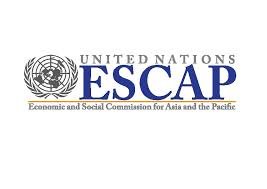The Fourth Session of the Committee on Trade and Investment, a regional policymakers’ forum convened biannually by the United Nations Economic and Social Commission for Asia and the Pacific (ESCAP), called for continued work in trade facilitation and paperless trade, a renewed focus on potential regional barriers to trade and investment and the ongoing need to integrate the region, especially along the lines of South-South cooperation.
The Committee also called for countries to build capacity so that policymakers could effectively navigate the new global economic landscape.
“Strong, diversified and well-balanced growth and trade, propelled by both external and domestic demand, will be critical to set on course the SDG implementation,” said United Nations Under-Secretary-General and Executive Secretary of ESCAP Shamshad Akhtar in her opening remarks at the Committee.
Akhtar said, “It is an opportune time for the region to take stock of its real trade potential and to take steps to enhance its competitive edge through implementation of enabling policies that fully exploit each country’s economic potential in an inclusive and sustainable manner.”
Discussions at the Committee were informed by findings in the ESCAP Asia-Pacific Trade and Investment Report 2015 Supporting Participation in Value Chains released earlier this week.
The report sent a strong message that the Asia-Pacific region needs to respond to slowing global trade growth with new policies that boost competitiveness and productivity to harness the potential for trade created by the spread of Global Value Chains.
The Trade and Investment Committee session was one of the main events during the Fourth Trade and Investment Week held by ESCAP and partners from 1 to 6 November.
The Week also featured the 12th Session of the Asia-Pacific Business Forum which brought together over 300 business leaders, government policymakers, and representatives from civil society and international aid and development agencies to highlight the role of public-private partnerships in sustainable development.
Other highlights of the Week included an Expert Group Meeting on ‘Trade Policies for Sustainable Development,’ ahead of the forthcoming WTO Ministerial Conference in Nairobi, a workshop on 'Harnessing Science Technology and Investment (STI) for Sustainable Development,' and the inaugural meeting of the ESCAP Sustainable Business Network (ESBN).
The fifth meeting of the Financing for Development (FDI) Network reviewed the recent trends and developments in FDI in the region, and in partnership with the Asian Development Bank Institute (ADBI), ESCAP delivered training to participants from across the region on research, tools and data for evidence-based trade policy making.
ESCAP member States also continued to make good progress on a prospective regional agreement on cross-border paperless trade facilitation.
The regional agreement looks to provide a framework to enable the exchange and mutual recognition of trade-related data and documents in electronic form and facilitate the interoperability of paperless trade systems.
HA/PR
